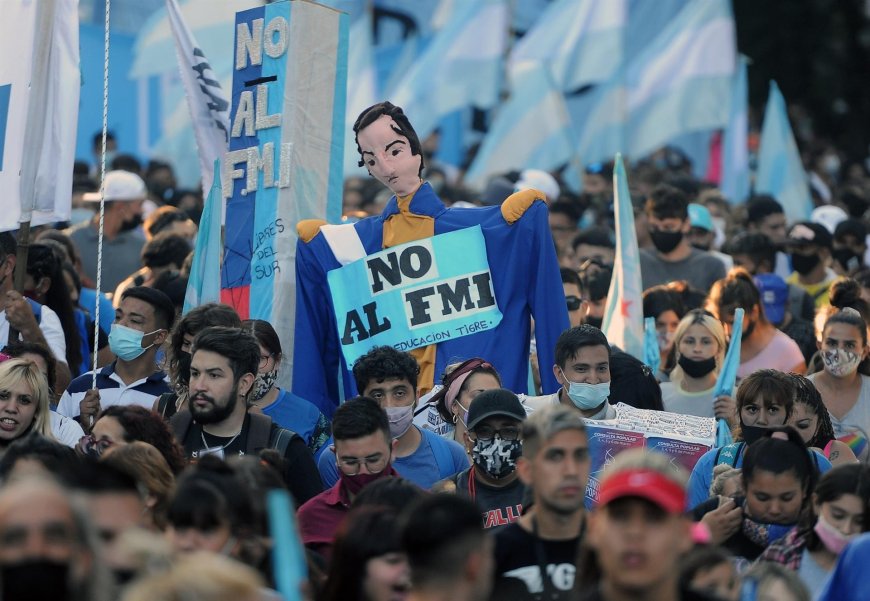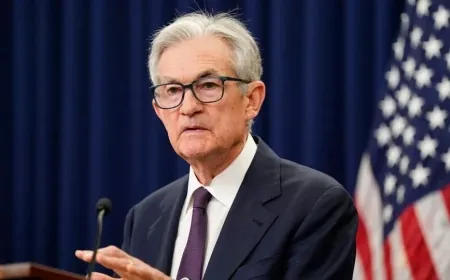Argentina Faces Critical IMF Talks to Resolve Looming Debt Crisis
Argentina and the IMF prepare for crucial negotiations to address the country's mounting debt issues. Stay updated on the high-stakes talks and their potential impact on Argentina's economy

Argentina and the International Monetary Fund (IMF) are gearing up for high-stakes negotiations to address the country's mounting debt issues. These talks will be pivotal in overhauling Argentina's massive and precarious debt deal, which is crucial to avoid defaulting on looming debt payments worth billions of dollars.
As a country plagued by inflation and currency crises over the years, Argentina entered into a $57 billion loan agreement with the IMF in 2018. However, this deal proved unsuccessful and was subsequently replaced last year with a revised program amounting to $44 billion. Unfortunately, due to negative net foreign currency reserves, aggravated by a severe drought that devastated soy and corn harvests, Argentina once again faces the risk of missing debt repayments. The country is set to pay $2.7 billion to the IMF this month alone.
To tackle this pressing issue, Economy Minister Sergio Massa is expected to travel to Washington in the coming week to accelerate discussions with the IMF. The primary objectives of these negotiations are to expedite IMF disbursements and seek flexibility in the economic targets associated with the debt agreement. Investors and traders are keenly observing these developments, aware of the potential impact on Argentina's economic stability.
Ricardo Delgado, representing Argentine financial services firm Analytica, expressed concerns over the lack of significant progress in the negotiations, noting that the IMF recognizes Argentina as its main debtor. While the talks are ongoing, an economy ministry source revealed that Massa's trip may be postponed based on the progress of virtual discussions. They emphasized the need to finalize the agreement before the minister's travel plans are confirmed.
In Buenos Aires, pressure is mounting as the effects of soaring inflation, which has reached a staggering 114%, take a toll on salaries and purchasing power. Moreover, Argentina's reserves have dwindled, pushing one in four people into poverty. Many citizens, attributing these hardships to the austerity measures tied to the IMF, are calling for a change in economic policies and a break from dependence on the organization. Hugo Godoy, a union leader, voiced concerns about the alarming poverty rate and the significant number of citizens suffering from hunger.
The Argentine government aims to expedite over $10 billion in IMF disbursements scheduled for this year. However, they are cautious about implementing stringent austerity measures as general elections in October loom, with a likely defeat predicted for the ruling party. Analyst Gustavo Ber highlighted the importance of the ongoing negotiations, as receiving fresh funds or rescheduling disbursements and payments would alleviate financial tensions and stabilize the exchange rate.
Meanwhile, Argentina has been extending local debt maturities to delay peso-denominated repayments. The country has also extended its currency swap line with China and is facing a substantial wave of obligations with private foreign creditors next year. Although local debt exchanges and positive developments with the IMF have nudged Argentina's dollar-denominated bonds from the distressed territory, concerns remain about the sustainability of the country's long-term economic recovery.
The Institute of International Finance, a Washington-based banking trade group, warned that expediting IMF payouts may only serve as a short-term "damage control" solution until the end of the current government's term in December. They stressed the need for comprehensive measures to address the underlying economic challenges.
Despite the economic turbulence, Argentina received a glimmer of hope as monthly inflation showed signs of easing in May, declining for the first time in six months. However, with inflation still at a considerable 7.8% for the month, there is a long road ahead to stabilize the economy fully.
As Argentina braces for crucial IMF talks, the outcome of these negotiations will have far-reaching consequences for the country's financial future. Investors, citizens, and global markets await the resolution of this intricate debt puzzle, hoping for a sustainable path forward for Argentina's economy.
Also Read: IMF Predicts Resilient Economic Growth for India in FY23
































































